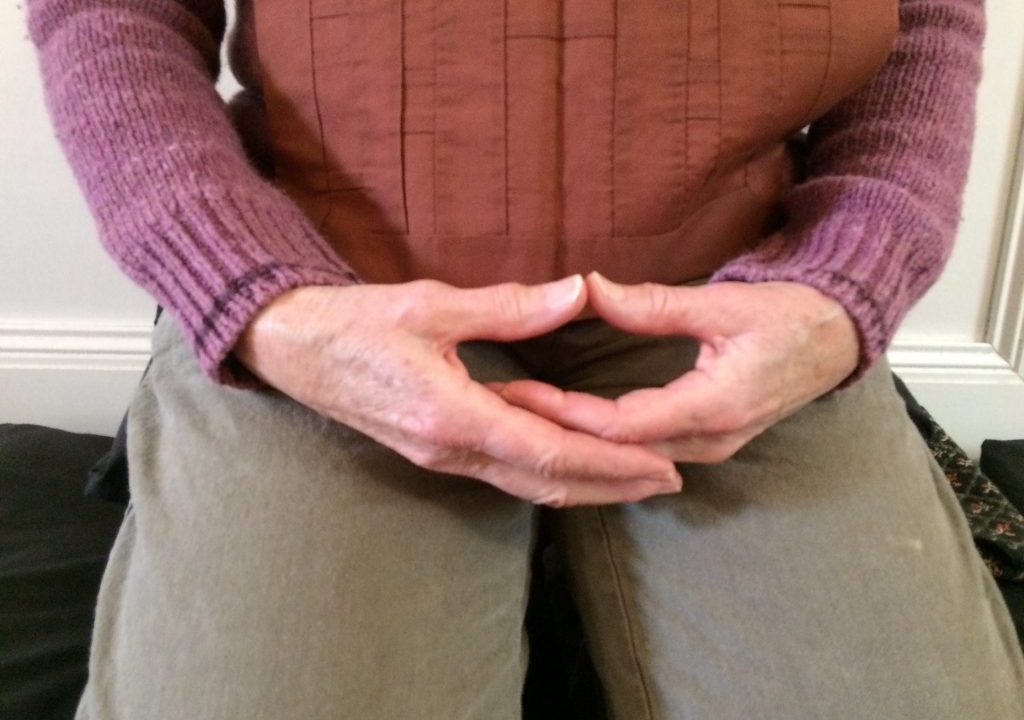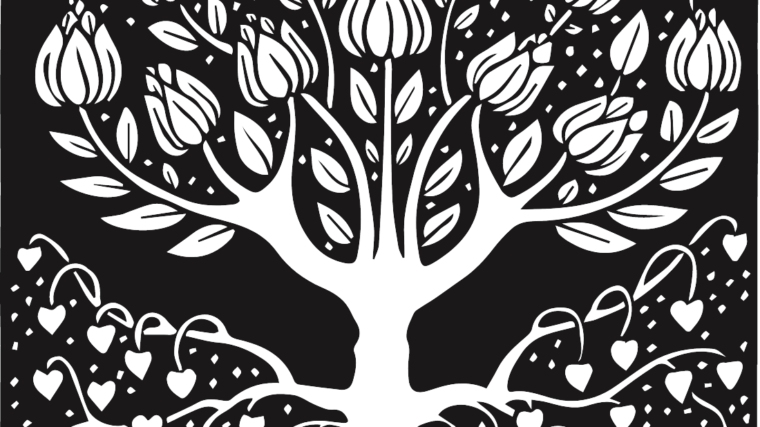Oh the zazen of the Mahayana!
To this the highest praise!
Devotion, repentance, training,
the many paramitas—
all have their source in zazen.
From “Song of Zazen,” by Hakuin Zenji
Why is it that we practice zazen? I would like to begin to examine that question in a short series of talks. While this question may appear basic, in fact it goes deep into the very core of our practice. We all have times when zazen is difficult. Sometimes we are beset with physical pain. Sometimes our minds are unsettled and we feel that we would rather be anywhere else, doing almost anything else. There are times when we do not see any changes occurring as a result of our practice and become frustrated, wondering if all this is really worthwhile. There are times of just plain boredom, when we realize that the jikido has fallen asleep or perhaps fallen into a deep coma, leaving us in zazen posture for eternity.
There are times when we spend months stuck on an absolutely impenetrable koan, clearly demonstrating that we are in fact the exception to the truth that all beings have Buddha nature. There are the innumerable pressures and demands in our lives that call us to question how we can afford the seeming self-indulgence of sitting. There is the pain and discomfort of coming face to face with our own attachments, delusions and fears. When these difficult times arise for us, the temptation to quit can be strong. Why, why do we practice, why should we persist?
There is a view in this culture that meditation is a kind of physiological and psychological panacea. We see studies that indicate that meditators cope better with stress, can reduce anxiety, lower their blood pressure, improve their memory and so on. Programs, courses and tapes for meditation all offer to help us to achieve these benefits. Perhaps it is even part of our motivation to begin practice, but is this the type of motivation that will carry us through the hours, days, weeks, and even months when the barriers that are the marrow of Zen practice arise? Nor is zazen, the zazen of the Mahayana that Hakuin praises, a self-improvement activity. Why then do we sit zazen?
The simplest answer is that there is no why. There are a number of koans that teach us that from a Zen perspective, to ask why is to miss the point entirely. We practice because we practice. Dogen Zengi, whom I will speak of later in these talks, says that we practice because we are already enlightened. It is the expression of our enlightened nature. In that sense there is no more reason why, than we can say why fish swim or birds fly. Fish swim because they are fish. Birds fly because they are birds. We sit because we are enlightened.
Yet, while I think that Dogen’s explanation is important, this answer also short circuits the possibility of exploring the rich and profound context for zazen that has developed through the 2500 years since Shakyamuni Buddha. We know that he came to his realization through sitting. When years of ascetic practices failed to bring him the liberation he sought, instead nearly bringing about his death, he sat down under the Bodhi tree determined not to rise until he reached a profound awakening. One can only imagine the determination he must have brought to that effort. That was zazen. Powerful determination, reaching deep, deep samadhi until one morning, viewing the morning star the he saw clearly, exclaiming “All beings have the wisdom and virtue of the Tathagata.”
Arising, the Buddha began to travel and teach for the next forty years. The very core of his teaching was the Four Noble Truths. These are the existence of suffering, there origin of suffering, the end to suffering and the path to that end. The existence of suffering. The Pali word that is translated as suffering is dukkha. What is dukkha? Why did the Buddha give these statements about dukkha the central place, from which all of his other teaching followed? Was this a nihilistic assertion as it some persons conclude? Was he saying “life’s a bitch and then you die”? In a sense that is what that first truth is saying. We all suffer. We get sick, we see loved ones ill and in pain, and we witness the incalculable misery that poverty, disease and war bring across the globe, in the end we loose everyone and everything, including our lives. Oy!
But that truth cannot be taken out of the context of the other three. In the second truth we find that this suffering has an origin or cause. The root of dukkha as I understand it is our delusions. Perhaps the most fundamental delusion is that of separation. We don’t see that Reality is a single body, with no separate and independent entities. When we separate ourselves from everything else, this leads to one of the Three Poisons, Ignorance. However that is only one half of the equation that results in our suffering.
Failing to recognize and accept impermanence we begin to attach to objects. That attempt to create solidity and define what is mine, leads to the second Poison of Greed. Of course, the reality is that everything changes and nothing lasts. At some point even the entire universe will end, collapsing back into itself. Life ends, love ends, things grow old, crumble and decay. That is simply the nature of things, though acknowledging it may still sound a little nihilistic.
This tendency to form rigid conceptualizations and attachments that try to impart stability and permanence is of course futile. The result is that we constantly feel disappointment, loss, and pain. It is those added emotions that I believe are the substance of dukkha. For example, we want to be well and therefore become upset when we become ill. Perhaps our plans are disrupted and we may also be disappointed. We may continue to add to the frustration by recalling other similar situations. All of this may lead us to focus more on the physical discomfort, feeling a growing sense of anger. The sickness is what it is, but everything else we add is the suffering, the dukkha that the Buddha spoke of.
However, in the Third Noble Truth is that there is an end to suffering, which opens a new possibility. We have the possibility of giving up the attachments and delusions that are the source of our suffering. As we do that over time; we come to realize that our perception of separation between ourselves and the world is itself a delusion. The One Body is realized. Gradually, aided by this insight we continually renew our dropping off of our attachments. This is the heart of our practice.
The Fourth Noble Truth tells us that there is a path or way to accomplish this relinquishment. Aiken Roshi describes this simply, “This process of purifying involves zazen and the rest of the Eightfold Path- right thinking, right action and so on. When you are ready, some little thing will happen, and then everything will be clear.” The Eightfold Path includes right understanding, right thought, right speech, right action, right livelihood, right effort, right mindfulness and right concentration. Those last three; right effort, right mindfulness and right concentration are the attributes that help us to follow the path of mediation, the practice of zazen.
Yet while the desire for liberation and the experience of peace may be part of our motivation to practice, it can also lead us into a subtle spiritual trap. Aiken Roshi explains, “We view this process in a psychological way, as though Buddha-nature were coterminous with human nature, and our task is simply to deepen ourselves to the point where we are in touch with our pure essence. Then at that point we are able to acknowledge all kinds of new and interesting things about the universe.” I think this is what Trungpa Rinpoche called spiritual materialism, where spiritual attainment becomes an object for acquisition. Our practice is reduced to being another activity to gain a trophy, or a certificate for the wall. This is a dangerous perspective, for our pride and feelings of self-righteousness are enhanced. We are somehow better than others because we practice. I suspect we all fall into this trap from time to time.
I recently spoke with a person who told me that he had read that Shunryu Suzuki Roshi said that we must practice zazen without any idea of gaining. Because of that he decided that he couldn’t practice at all, since his zazen would be contaminated with gaining thoughts. How do we deal with this seemingly irresolvable bind of having these kinds of thoughts and aspirations arising with regularity? Should we just avoid practicing as my friend did?
I think that tooth brushing of all things can provide us with a useful analog to understand how this resolves. When we start brushing our teeth it usually begins with a reason. We want to avoid cavities, we want clean white teeth, we want to be more attractive. However after a while we no longer think about those things. We just brush our teeth. Moreover, tooth brushing becomes an essential part of our life. If we miss it we don’t feel right. I think that our zazen goes through the same process. If we do it over and over long enough we find the gaining thoughts diminishing. We just practice. Eventually, when we practice long enough it is an essential part of our day. When we miss it our day does not feel complete. This is the practice of fish swimming and birds flying. It is the practice of cats and cows.
Nanquan said to the assembly, “The buddhas of the past present and future do not know it is: cats and cows know it is.
Ultimately the process of zazen is quite simple. Mustering our determination and persistence we sit down and focus on our practice. We get bored; we acknowledge it and go back to the breath. We get frustrated; we acknowledge it and go back to the breath. Our mind wanders; we acknowledge it and go back to the breath. Of course we rarely keep it that simple; we begin to judge ourselves and our practice. “My concentration is lousy today.” “Wow, my mind is so clear and still.” But to do zazen, we must leave those judgments too and once again simply return to the breath.
Sharon Salzberg and Joseph Goldstein say it clearly:
“If you have to begin again and again and again in the course of one sitting, that’s the practice. That’s what meditation is.”
Over and over, beginning again and again. That is zazen. That is practice. We are already enlightened, just as we are. If we continue to practice, we will eventually realize that each of us sitting here today, just as we are, neurotic, messed up, and confused schlemiels have Buddha nature. How amazing is that?



